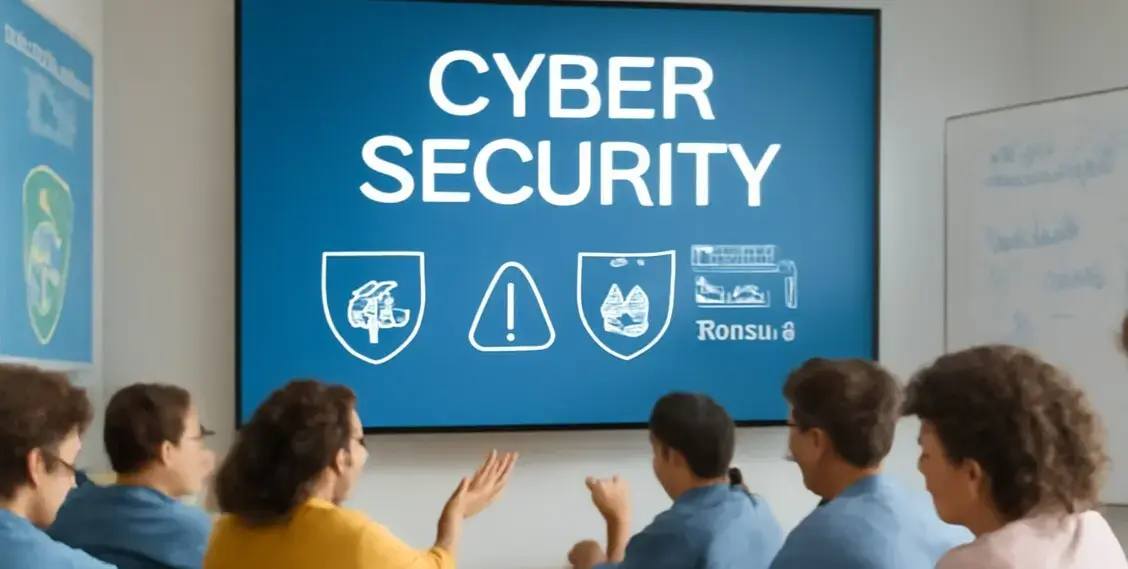Cyber Attack Tabletop Exercises: Everything You Need to Know
Date: 17 October 2022

What are Cyber Attack Tabletop Exercises and why are they so important? What constitutes Cyber Tabletop Exercises scenarios? These and other significant cybersecurity questions are answered in the following sections.
If 2023 has taught us anything it is the fact that a business of any scale or size can be compromised at any time. In 2020, the rise in cyber-attacks was attributed to the shift to remote work and increased digitization. In the last three years, we have learnt that that is the new reality of our times.
All that we can do to protect ourselves is to be prepared. This is where Cyber Incident Planning & Response becomes critical.
So where do Cybersecurity Tabletop Exercises fit in? Let’s find out in this blog.
If you want to conduct a cyber tabletop exercise of your own, you should check out our course on How to Conduct an Effective Cyber Tabletop Exercise.
Also, don't forget to download our stellar resources created by the world's leading cyber tabletop exercise facilitators:
- Top cybersecurity tabletop exercise scenarios - The ultimate list of cyber attack tabletop exercise examples, threat actors and asset categories to prioritise.
- Cyber Security Tabletop Exercise Template - Easy to use, customisable Cyber Security Incident Simulation Tabletop exercise template created by the world's leading cyber drill facilitator.
- Cyber Tabletop Exercise PPT - Ensure greater engagement with this cyber tabletop exercise PowerPoint which contains the distilled insights and guidance from our cybersecurity experts.
What exactly is a Cyber Attack Tabletop Exercise?
A Cyber Attack Tabletop Exercise is a test of your organisation’s ability to respond to a cyber-attack. It helps you evaluate how effective your cyber incident response plans are. It also shows you how aware the organisational stakeholders are of their roles and responsibilities in case of a cyber incident. The tabletop exercise is a verbally-simulated scenario that mimics a real cybersecurity incident which could have a damaging impact on your business continuity.
A Cyber Attack Tabletop Exercise is conducted by a highly-experienced cyber expert who creates relevant attack scenarios for your business. During the exercise, the participants are forced to think and make decisions like they would when an actual incident occurs. Participants should ideally include members of the executive team, IT/InfoSec team and Incident Response team members.
After the cyber tabletop workshop, the facilitator creates an Executive Summary. This captures how effective the incident management and organisational response to the cyber security incident was. The report is a concise document that shows how effective incident response within your business is and highlights the lessons learned.
This report can then be used by the organisation to enhance and improve their risk management and information security processes and policies over the long-term.
The idea here is simple - you may have a wide range of cybersecurity plans and procedures in place. But if they’ve never been tested and the key decision makers aren’t aware of what’s in them they’re of no use.
The cyber security incident simulation tabletop then acts as a true litmus test of your organisational readiness against cyber crime, data breaches and ransomware attacks.
How are Cyber Security Tabletop Exercise Scenarios planned?
Cyber tabletop exercise scenarios are usually designed by the facilitator along with a representative of the organisation. The scenarios focus on risks and incidents that could actually affect the business.
This means that the attack scenarios must be contextual and relevant. There is little point in rehearsing a scenario that would never actually impact your organisation.
When a relevant scenario is discussed in the workshop, it draws out real reactions from the attendees. They begin to understand the severity of the impact such an incident could have on their business.
As a consequence they also clearly see why effective incident response planning is imperative. Their own roles and responsibilities become clearer to them and start to really think about how they would respond in case of a real crisis.
Benefits of Cyber Crisis Tabletop Exercises
Tabletop exercise scenarios for cybersecurity can have several benefits for your organisational cyber maturity. Some of these include:
- Demonstrating whether your Incident Response Plans are any good or not.
- Clarifying individual roles and responsibilities to the Board and the Executive.
- Making it easier for the IT/Security teams to get business buy-ins on future cybersecurity decisions and budgets.
- Highlighting areas that may need work and staff members who may need more training in incident response.
- Facilitating improved inter-departmental coordination and communication.
- A cost-effective means to improve cyber resilience over the long-term.
- A blueprint (the executive summary) for enhancing cyber defences over the next few months.
How to plan a Cyber Attack Tabletop Exercise for your organisation?
There are numerous ways that one can conduct a cyber security tabletop exercise. Of course, seeking out and hiring an experienced facilitator is the most obvious.
However, if you’re still on the path to achieving a certain level of cyber maturity, our Virtual Cyber Assistant service can be of great help here.
The Virtual Cyber Assistant (VCA) is a remote and flexible service curated for organisations who don’t have the budget or requirements for hiring full-time staff. Accessible through a convenient self-service portal, the VCA service allows you to raise tickets for jobs that you need to have done.
You could start building your cybersecurity maturity by opting for the incident response services. The Virtual Cyber Assistant can help you create new plans, policies and documents or review and comment on your existing ones.
You could also opt for the Review and Refresh service wherein the assistant helps you realign your cybersecurity artefacts.
Once you have the necessary governance and risk management in place you can then move on to practising Cyber Attack Tabletop exercises . The Virtual Cyber Assistant can help you build a compelling scenario and conduct an effective workshop as they now have organisational context.
Here’s more detailed information on our Cyber Crisis Tabletop Exercises. We have also curated a free, downloadable Cyber Crisis Tabletop Exercise Checklist that you can use to start planning for a successful workshop.





.webp)
.webp)
.webp)
